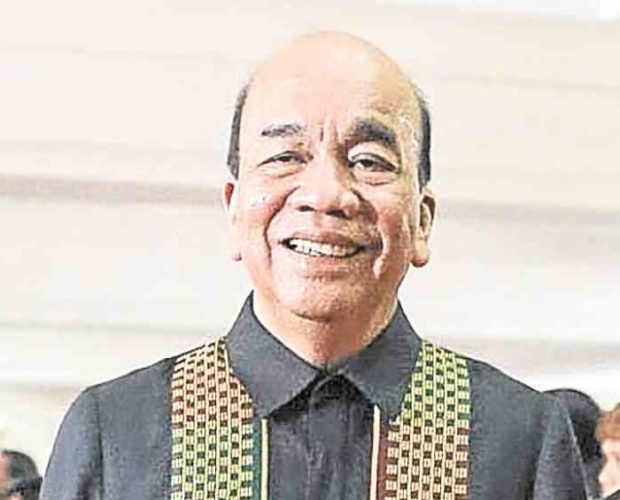
Cavite Rep. Elpidio Barzaga. FILE PHOTO
MANILA, Philippines — Officials of the Philippine Health Insurance Corp. (PhilHealth) may face technical malversation charges for the alleged misuse of interim refund mechanism (IRM) funds.
During the joint physical and online hearing by the House committee on public accounts and the committee on good government and public accountability, Cavite 4th District Rep. Elpidio Barzaga said IRM funds should only be used for cases involving “fortuitous event” such as the coronavirus pandemic.
Barzaga was citing PhilHealth Circular No. 2020-007, or the “Guidelines on the Provisions of Special Privileges to those Affected by a Fortuitous Events,” which tackles the disbursement of IRM funds.
However, Barzaga pointed out that other health facilities such as dialysis centers and private birthing facilities were also given IRM funds.
“Malinaw na malinaw sa Circular No. 2020-007 na itong ating IRM ay applicable lamang doon sa mga kaso na involving fortuitous event [like the] coronavirus,” Barzaga said.
(It is very clear in the Circular No. 2020-007 that this IRM is applicable only to cases involving fortuitous event [like the] coronavirus.)
“Pati na sa inyong mga bulletin, pati na sa inyong press releases, sinasabi niyo itong IRM is in order to address itong COVID problem,” he added.
(Even in your bulletins and your press releases, you are saying that this IRM is to address the COVID problem.)
When asked to confirm if dialysis centers, private birthing facilities and infirmaries were given IRM funds, PhilHealth senior vice president Dr. Israel Pargas said: “Yes.”
Barzaga said that this means PhilHealth officials could be held liable for technical malversation or illegal use of public funds.
“Sa technical malversation, kahit kausapin niyo ang mga kaibigan niyong abogado, good faith is not a valid defense. As long as public funds were used for a purpose different for which it was originally intended, you are liable for technical malversation,” Barzaga said.
(In technical malversation, even if you talk to your friends who are lawyers, good faith is not a valid defense.)
“So lahat ng pumirma sa cheke, lahat ng pumirma sa mga accompanying documents, they would be liable,” the lawmaker added.
(So all of those who signed the checks, all of those who signed the accompanying documents, they would be liable.)
Further, Barzaga said that it would be “easy” to convict those involved.
“Ipapakita lamang itong regulations niyo for COVID, ipapakita lamang yung mga cheke na binigay niyo sa dialysis center, pati na roon sa mga private birthing facilities, pati na sa mga ospital na hindi nagt-treat ng COVID, you would already be liable based on the documents,” Barzaga said.
(It only needs to show your regulations for COVID, show all the checks you issued to the dialysis center, even to the private birthing facilities and the hospitals that don’t treat COVID, you would already be liable based on the documents.)
This was not the first time that Barzaga grilled PhilHealth officials over the inclusion of dialysis centers among healthcare facilities that were given IRM funds.
In an earlier hearing, PhilHealth executive vice president Arnel de Jesus explained that the funds under IRM are not specifically for COVID-19 cases but its to mitigate the effect of the pandemic to the entire health care system.
De Jesus further said that the state health insurer can give cash advances to hospitals under the IRM even though they do not cater to COVID-19 patients.
IRM is an emergency cash advance measure of PhilHealth to provide hospitals with an emergency fund to respond to natural disasters, calamities as well as other unexpected events.
PhilHealth earlier announced the suspension of the IRM after several senators called for its temporary halt amid allegations that the release of funds for the country’s coronavirus response was marred with irregularities.